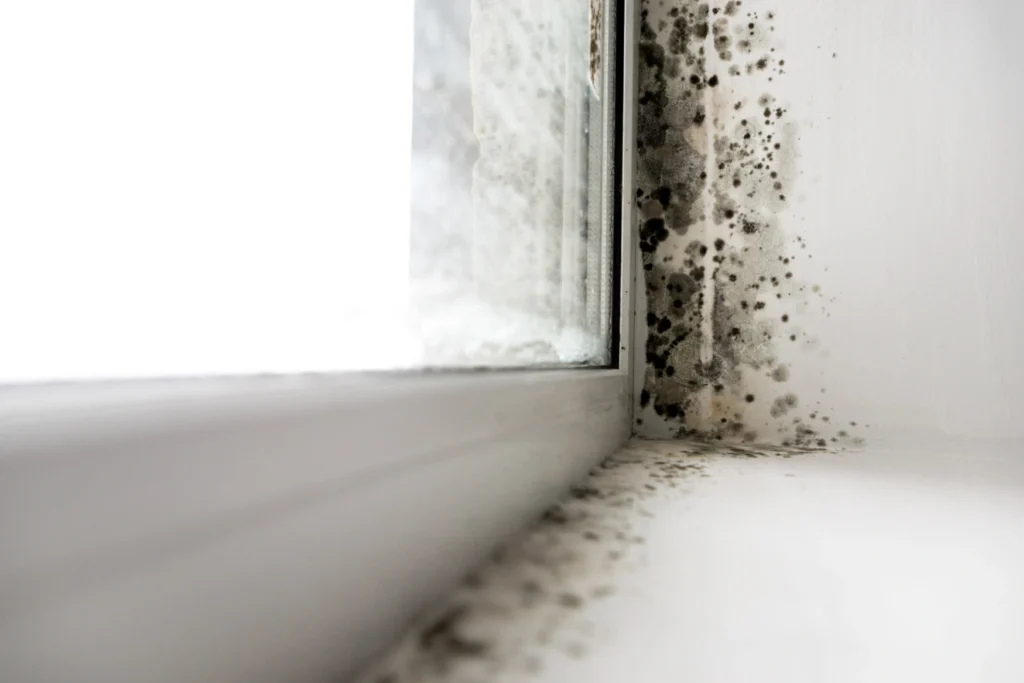When we think about air pollution, we often picture smoggy skies or exhaust fumes from vehicles. But did you know that the air inside your home or business can be more polluted than the air outdoors? One of the most overlooked contributors to poor indoor air quality is mold. It’s not just unsightly—it’s a silent invader that can significantly impact your health and the overall comfort of your indoor spaces.
What Is Mold and How Does It Grow?
Mold is a type of fungus that thrives in damp, humid environments. It reproduces by releasing tiny, airborne spores that can settle and grow on virtually any organic material, including wood, drywall, insulation, carpet, and furniture. Common sources of indoor mold include water leaks, flooding, condensation, and poor ventilation—especially in areas like basements, bathrooms, kitchens, and attics.
Once mold establishes itself, it can spread quickly and invisibly. Even if you don’t see large black or green patches, mold spores might already be circulating in your air, impacting the quality of the air you breathe daily.
The Link Between Mold and Indoor Air Quality
Mold affects indoor air quality in two primary ways:
- Airborne Spores: Mold releases microscopic spores into the air. These spores can easily be inhaled and may trigger a range of respiratory issues, especially in individuals with allergies, asthma, or compromised immune systems. For some, exposure can lead to persistent coughing, wheezing, nasal congestion, and throat irritation.
- Mycotoxins: Certain types of mold, like Stachybotrys chartarum (commonly referred to as “black mold”), produce toxic compounds known as mycotoxins. These can be harmful when inhaled, ingested, or come into contact with skin, and may contribute to more serious health effects over time.

Health Risks of Poor Indoor Air Due to Mold
The health risks associated with mold-contaminated air vary depending on the type of mold and a person’s sensitivity. Common symptoms include:
- Allergic reactions (sneezing, runny nose, skin rashes)
- Asthma attacks or worsening symptoms
- Chronic sinus infections
- Eye and skin irritation
- Fatigue or headaches
- In rare cases, neurological issues or immune system suppression
Children, elderly individuals, and those with pre-existing respiratory conditions are especially vulnerable.
Signs Mold May Be Impacting Your Air Quality
While mold isn’t always visible, there are several indicators that your indoor air may be compromised:
- Musty or earthy odor
- Unexplained allergy symptoms
- Frequent headaches or fatigue indoors
- Condensation or damp spots on walls or ceilings
- Recent water damage or leaks
If you notice any of these signs, it’s time to consider a professional mold inspection and air quality test.
What Can You Do to Protect Your Indoor Air?
Maintaining clean, healthy air indoors requires proactive measures:
- Fix leaks and water damage promptly
- Improve ventilation, especially in moisture-prone areas
- Use dehumidifiers to reduce indoor humidity levels
- Regularly clean HVAC systems and replace air filters
- Invest in professional mold remediation if contamination is found
At MoldShield, we specialize in identifying and eliminating mold threats to restore your air quality and peace of mind. Our team uses advanced air testing tools and proven remediation techniques to ensure your home or business is safe and breathable again.
Final Thoughts
Mold is more than a surface-level issue—it’s an invisible threat to your indoor air and your health. Don’t wait for symptoms to appear. Being proactive about indoor air quality means protecting yourself and your loved ones from potential long-term effects.
If you suspect mold is impacting your air, reach out to MoldShield today for a comprehensive assessment and expert remediation solutions.